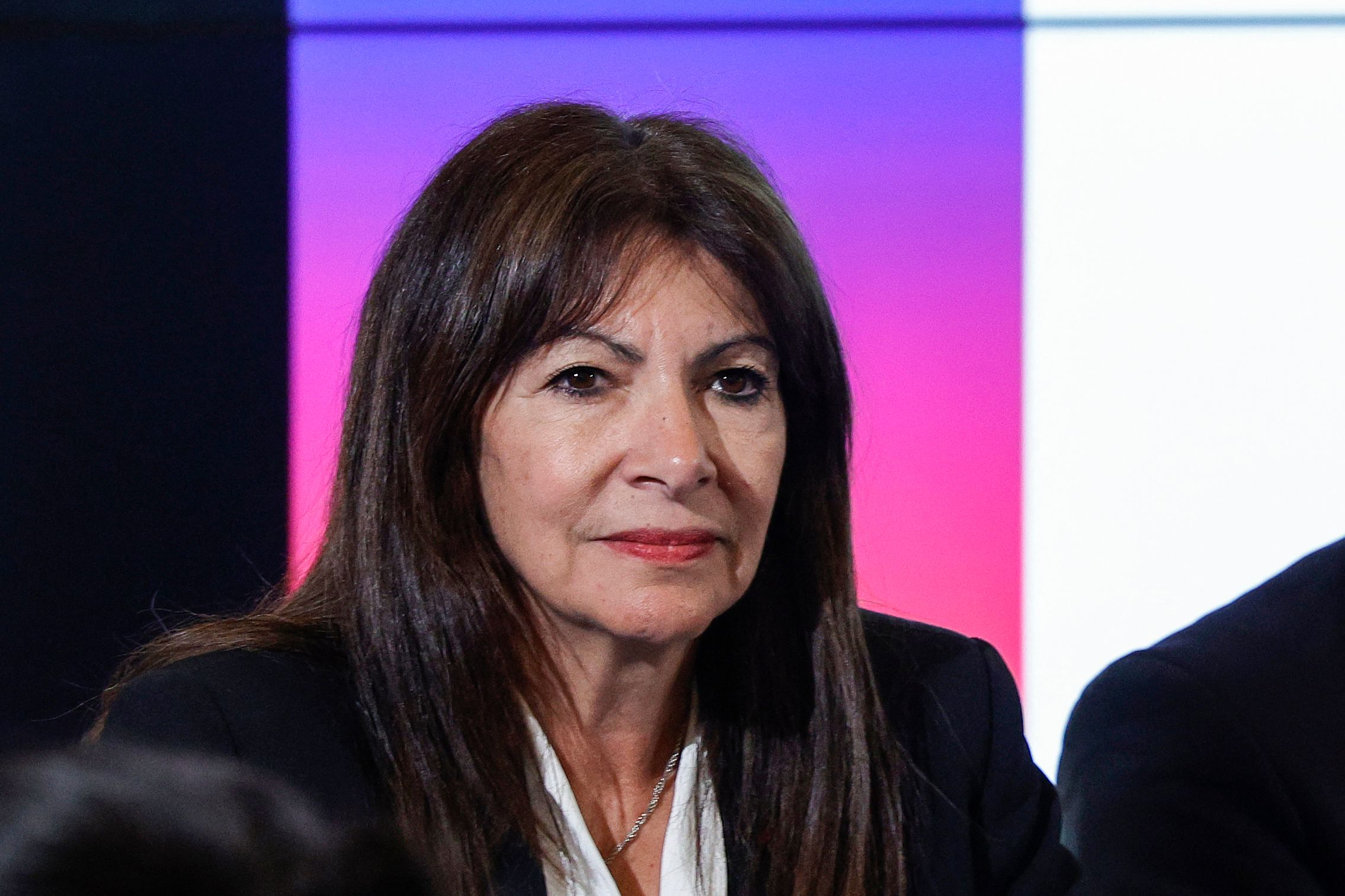Herbert Grönemeyer celebrates his new album deep in the west of Berlin, in a fine restaurant that used to be a prison, a women's prison. The walls and the bars are still there like evil spirits. "It could be so easy", Grönemeyer sang for the Fanta 4 many years ago. It's never just easy and good and beautiful for him, neither in life nor in his songs. As euphoric and sublime as his current anthems sound, he is stuck in a "tragic traffic jam", helping others out of the "double jacket" and is trapped in a "strictly alpy dream".
Grönemeyer sits in front of a meter-thick brick wall and plays the 13 songs from his 16th album. "Music," he explains, "for these complex times." He tells how he composed the pieces in Italy, between the pandemic and the war, and how he recorded them in Sweden on the Baltic Sea while the navy concentrated its ships off the coast and the first fighter jets flew over his barn where the equipment and instruments were kept. As in late summer 2001, when "Mensch" ("The best song I've ever written") coincided with the terrorist attack in New York, "Tau" had become his own soundtrack for the outbreak of war a year ago: "Sometimes lays the dew falls on me/ And then I get a little sad/ Because I don't believe/ That everything is as beautiful as it is”.
He called the album “Das ist los”*. The cardboard cover only holds out two sky-blue hands helplessly. What's going on, he says, he doesn't know himself. "That's going on" is also the name of one of the songs: "Banking crisis, emirate/debt brake, wind farm/life hacks, burnout, horoscope/cis, binary and transqueerphob/Gucci, Prada, Taliban/Schufa, Tesla, Taiwan madness". So it goes on with the associative thunderstorm of stimulus words. Oat milk and chia seeds, Orban and Le Pen, Cloud, Metaverse and crypto courses. "That's what's really going on/ Oh, oh, oh, oh/ Oh, oh, oh, oh." It not only reads completely over the top and insane, it sounds like it too. "Electro, punk and Sturm und Drang," Grönemeyer barks himself at the end of the song. His music attempts a synthesis of slogan rave and Ballermann row, a new German rule of three: Deichkind, Ikke Hipgold, Herbert Grönemeyer. Oh, oh, oh, oh, really.
On the one hand, Grönemeyer is considered the greatest German folk singer and most influential songwriter, just as Wolf Biermann introduced the profession of singing poet in the 1960s, based on Bertolt Brecht's professional concept of playwright. On the other hand, Grönemeyer is not a singer-songwriter at all. He sees himself as a singer-songwriter. Already in the twelve-part television series "Pop 2000" on ARD at the turn of the century about the history of German pop music, he spoke in detail about the difficult history. About the Nazis' break with the progressive Schlager tradition, about new beginnings in the post-war years and about emancipation from the Anglo-American music market.
On his first album "Grönemeyer" Grönemeyer only sang two of his own texts, which he set to music on the piano in the songwriter's style, "Guten Morgen" and "Ich bin einspieler". "Currywurst", written by Horst-Herbert Krause, was his first hit. With "4630 Bochum" he became a songwriter who invented his melodies, worked out the harmonies, arranged the pieces - and finally wrote the lyrics.
Since then, the lyrics have to fit the music. "Incredible wanderlust/ With a touch of melancholy/ Before I stand empty here/ I'll miss it/ Ba da do ri di da da/ Ba di da ri ri da da ba da/ Ba do da ri da di da do/ Bo di da ri da di da ba di". "On it, inside/ I don't want to go anywhere else/ New, German". Before performing his enigmatic lyrics, he tests them for singability in “banana texts”, as he calls his process. Sometimes he even publishes them as odd versions. "Was sani on your door/ Was sapi on your grow" became "Am Meer".
Grönemeyer makes no secret of this. The banana text-like is one of his songs of praise, like the Bochum bel canto and the slightly blown sound of the grand piano. In the former women's prison, where expensive wine is served today and tender beef shoulders are served, he tells how, when the recordings in Sweden were musically complete and complete, he "rummaged through words" and "put songs on beats" in Berlin. .
For 13 pieces he found lyrics to the music, for 16 more he wrote lyrics, but they didn't fit. For the first time he puts the discarded lyrics in a booklet with an album, lines like: "We don't need any enemy camps/ No blunt naysayers either". The poem is called "Germany". One can imagine that a melody resists this, even without the music. "I try to dress my music, but sometimes it just doesn't suit me," he says.
There are remnants of banana lyrics in the new songs like in "Herzhaft" where he ended the chorus with "Baby, you wanna dance" because he couldn't think of anything German or thoughtful. But he has already translated entire songs back into Grönemeyer English, such as "Bochum, oh, Glück auf, my home". And he has always treated German as a language that follows rhythm and meter, which, together with the demands of the sound and his will to broadcast, has shaped his own offbeat poetry. "Take me to heart", "Oh, unfreeze your genius", "Your real super you", "Dance it up", "Just don't put yourself under pressure", "The walls are papered with crises", "You create my ego overweight", "In every lack of understanding the broad-hearted hand", "Your voice sounds so far / After further time".
Only Grönemeyer is capable of singing such words by compressing and stretching them: "Emotional events", "Excess body" and "Retterinnenweg". With him, everything weighs tons and is weightless at the same time. From "staggering, trauma/everything gray and stale" to "you roll over problems/from left to right/then back again/and then you feel sick" to "brilliantly light" Herbertisms like "You have an appointment in the morning/ And you have to go there."
You don't always know what he means and what he wants to say to you, but that's also where the singer-songwriter differs from the songwriter. "Anyone who doesn't struggle / sticks to the traffic light / and waits for green," says "Angstfrei". Somehow it's about the climate and the future, the music seems cheerful, and in the video young and old practice expressive dance. "The Key" seems to be a song for refugees. In "Deine Hand" with a text by Grönemeyer and the singer Balbina to music by Nellie Christina Andersson, the hand of the other gives hope and provides support in the complex times for which Grönemeyer made "Das ist los". He explains it with the conflict of "humanistic and uncanny elements".
But his songs are still at their best when the layers aren't too thick and make the words seem more important than they are. His most beautiful sentence on the album is: "I like people." "Urverlust", a ballad, is his most beautiful new song: "We two were just/ Just so good/ We were just, just good, so good/ So-di- de, oh/ So-del-de-di-de/ Were just good/ So good."
Herbert Grönemeyer's new album "Das ist los" will be released on March 24th as a vinyl LP, CD and MP3. You can order it here.*
* This text contains affiliate links. If you make a purchase using the links marked with an asterisk, WELT will receive a small commission. You can find our standards of transparency and journalistic independence at axelspringer.de/independence.

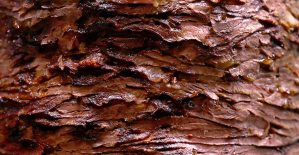 In Germany, the far left wants to cap the price of “doner kebabs”
In Germany, the far left wants to cap the price of “doner kebabs” Israel-Hamas war: Gaza between hope of truce and fear of Israeli offensive in the South
Israel-Hamas war: Gaza between hope of truce and fear of Israeli offensive in the South “Mom, Dad, please don’t die”: in the United States, a nine-year-old child saves the lives of his parents injured in a tornado
“Mom, Dad, please don’t die”: in the United States, a nine-year-old child saves the lives of his parents injured in a tornado War in Ukraine: Putin orders nuclear exercises in response to Macron and “Western leaders”
War in Ukraine: Putin orders nuclear exercises in response to Macron and “Western leaders” A baby whose mother smoked during pregnancy will age more quickly
A baby whose mother smoked during pregnancy will age more quickly The euro zone economy grows in April at its best pace in almost a year but inflationary pressure increases
The euro zone economy grows in April at its best pace in almost a year but inflationary pressure increases Children born thanks to PMA do not have more cancers than others
Children born thanks to PMA do not have more cancers than others Breast cancer: less than one in two French women follow screening recommendations
Breast cancer: less than one in two French women follow screening recommendations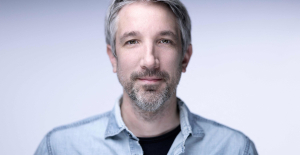 Call for strike on Sunday at Radio France against “the repression of insolence and humor” after the suspension of Guillaume Meurice
Call for strike on Sunday at Radio France against “the repression of insolence and humor” after the suspension of Guillaume Meurice Disney: profitable streaming for the first time, after 5 years of losses
Disney: profitable streaming for the first time, after 5 years of losses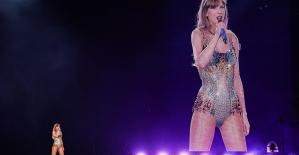 “I’m going to four concerts... I spent 1,255 euros”: for Taylor Swift, these fans ready to break the bank
“I’m going to four concerts... I spent 1,255 euros”: for Taylor Swift, these fans ready to break the bank SNCF: the CEO defends the agreement on the end of career, “reasonable, balanced and useful”
SNCF: the CEO defends the agreement on the end of career, “reasonable, balanced and useful” A little something extra, signed Artus, exceeds one million entries in less than a week
A little something extra, signed Artus, exceeds one million entries in less than a week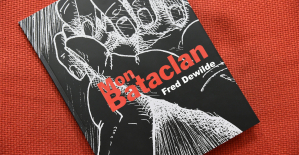 Fred Dewilde, designer and Bataclan survivor, ended his life
Fred Dewilde, designer and Bataclan survivor, ended his life “I don’t appreciate being used as media cannon fodder”: Emmanuelle Bercot responds to Isild Le Besco
“I don’t appreciate being used as media cannon fodder”: Emmanuelle Bercot responds to Isild Le Besco Who is Deborah de Robertis, the artist who painted The Origin of the World?
Who is Deborah de Robertis, the artist who painted The Origin of the World? Omoda 7, another Chinese car that could be manufactured in Spain
Omoda 7, another Chinese car that could be manufactured in Spain BYD chooses CA Auto Bank as financial partner in Spain
BYD chooses CA Auto Bank as financial partner in Spain Tesla and Baidu sign key agreement to boost development of autonomous driving
Tesla and Baidu sign key agreement to boost development of autonomous driving Skoda Kodiaq 2024: a 'beast' plug-in hybrid SUV
Skoda Kodiaq 2024: a 'beast' plug-in hybrid SUV The home mortgage firm rises 3.8% in February and the average interest moderates to 3.33%
The home mortgage firm rises 3.8% in February and the average interest moderates to 3.33% This is how housing prices have changed in Spain in the last decade
This is how housing prices have changed in Spain in the last decade The home mortgage firm drops 10% in January and interest soars to 3.46%
The home mortgage firm drops 10% in January and interest soars to 3.46% The jewel of the Rocío de Nagüeles urbanization: a dream villa in Marbella
The jewel of the Rocío de Nagüeles urbanization: a dream villa in Marbella Europeans: David Lisnard expresses his “essential and vital” support for François-Xavier Bellamy
Europeans: David Lisnard expresses his “essential and vital” support for François-Xavier Bellamy Facing Jordan Bardella, the popularity match turns to Gabriel Attal’s advantage
Facing Jordan Bardella, the popularity match turns to Gabriel Attal’s advantage Europeans: a senior official on the National Rally list
Europeans: a senior official on the National Rally list Blockade of Sciences Po: the right denounces a “drift”, the government charges the rebels
Blockade of Sciences Po: the right denounces a “drift”, the government charges the rebels These French cities that will boycott the World Cup in Qatar
These French cities that will boycott the World Cup in Qatar Mercato: Thiago Silva returns to Brazil and signs for Fluminense
Mercato: Thiago Silva returns to Brazil and signs for Fluminense Top 14: at what time and on which channel to follow the clash at the Toulouse-Stade Français summit?
Top 14: at what time and on which channel to follow the clash at the Toulouse-Stade Français summit? Tennis: Paula Badosa, former world No.2, passes the 1st round in Rome
Tennis: Paula Badosa, former world No.2, passes the 1st round in Rome Tour of Italy: Italian Jonathan Milan wins the 4th stage, Pogacar still leader
Tour of Italy: Italian Jonathan Milan wins the 4th stage, Pogacar still leader






